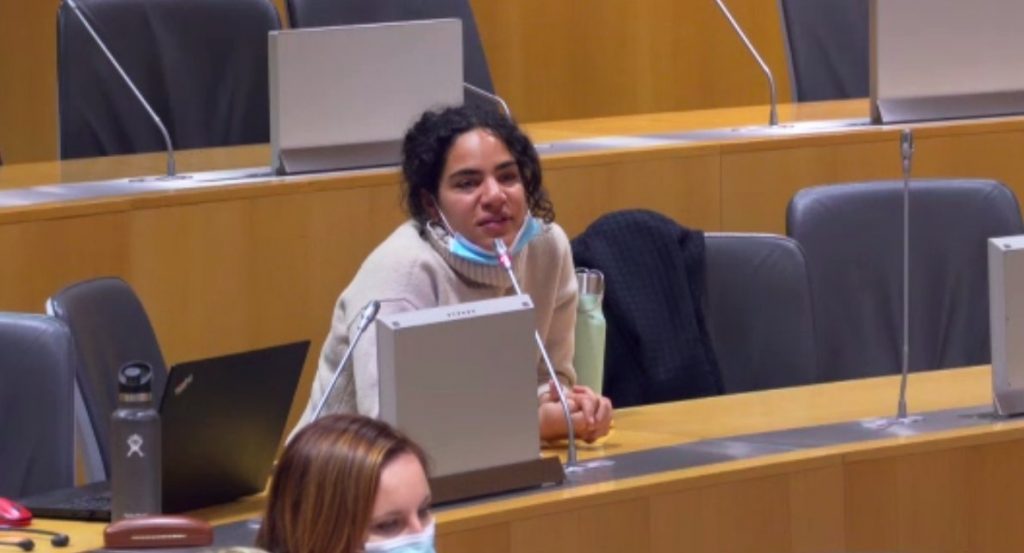News
Rabab Ahmad opening the workshop: Design for inclusion services
Policy and Programme Analyst, regional Office for the EEA, the EU and NATO, International Organization for Migration (IOM).

“Inclusive policies and practices are key to ensure that migrants’ well-being and basic rights are upheld and also important in harnessing the potential of migrants in contributing to society.”
Ms. Rabab Ahmad
Policy and Programme Analyst, regional Office for the EEA, the EU and NATO,
International Organization for Migration (IOM).
Opening speech at the second Includ-EU Regional Workshop
The question of designing and implementing inclusive policies and service delivery to migrant populations is at the heart of our work. Not only is inclusive service deliver key to ensure that migrants’ well-being and basic rights are upheld, especially when we think of health and housing: but it is also important in fully harnessing the potential of migrants in contributing to society. I’m particularly thinking of training education and employment services but also civic and political participation. And so effective service delivery across a range of policy areas is a precondition for migrants’ successful integration and social cohesion within European communities.
Inclusive service delivery is also a key aspect of the EU’s Action Plan on Integration and Inclusion which highlights in its policy approach to integration that services across all social policy areas – including housing, health, education and employment, should mainstream migrants’ needs where relevant and provide targeted support where necessary.
Under its thematic priorities, health is mentioned as an important one with an emphasis on streamlining also gendered health needs for migrants – including those linked to reproductive and sexual health.
The Action Plan also highlights the need to combat discrimination on the housing market; this of course entails the design of inclusive housing policies as well as the implementation of housing practices that reduces barriers to discrimination – including for example through the use of intercultural mediators on the housing market.
But designing and implementing inclusive policies and practices doesn’t only mean considering and streamlining the needs of migrants so that services are tailored to their particular context and needs. It also means including them in the design and implementation process; and streamlining their voice in the very fabric of such policies.
The EU recently established an EU Expert Group on the Views of Migrants in areas linked to migration, asylum and integration to better streamline the voice of migrants in policy-making. This is of course a regional platform but similar initiatives at national, regional and local levels are absolutely key in making sure that national strategies and local policies on integration effectively address realities on the ground – and that migrants’ voices are heard; making them active actors of their own integration.
Finally, I also wanted to flag that inclusive social policies is also important in advancing the different Goals and targets established under the 2030 agenda – we often think of developing countries when we talk about the Sustainable Development Goal but in fact Member States and European societies are also of course responsible for advancing the various targets under the SDGs: including those linked to economic growth and equal opportunities; health for all and equal education outcomes for all members of societies – including migrants. Inclusive service delivery is crucial in achieving just that.
Do you want to share your project with our community and stakeholders?